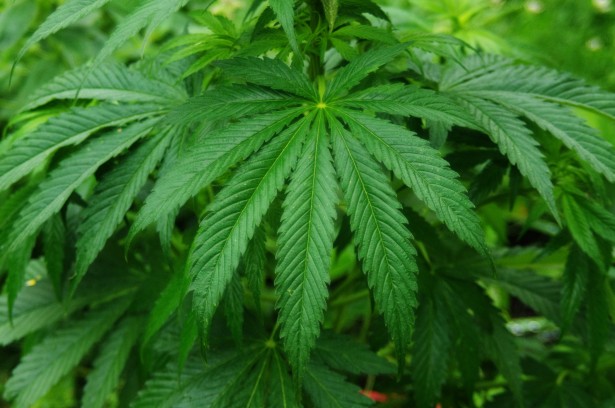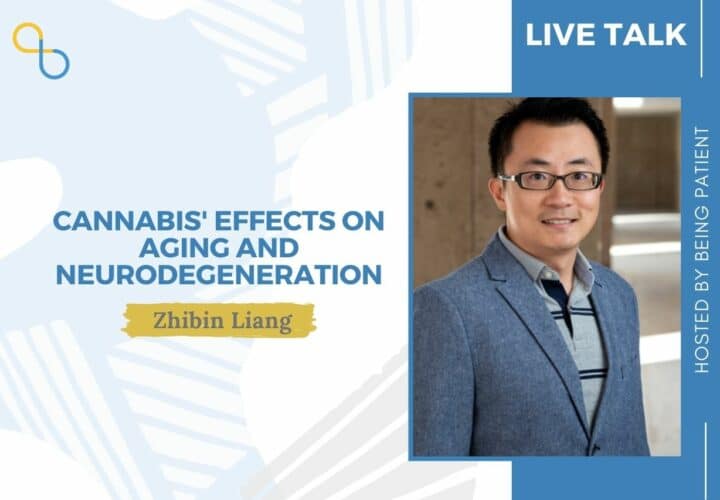Can cannabis treat cognitive decline and dementia? Or does it boost your risk for these conditions? There’s a lot left to learn about cannabis and brain health, but here’s one thing scientists do know for sure so far.
Almost 50 million Americans each year use some form of cannabis. In the 1920s, the drug was vilified because of recreational use by Mexican immigrants and Black Americans. Some scholars and legislators suggest that the U.S. Bureau of Narcotics called it “marijuana” because the word sounded foreign, making it more conducive to propaganda films and presentations. This campaign led to federal cannabis restrictions — and those restrictions have make it difficult to study the drug’s medical properties.
While its benefits have not been scientifically proven in large-scale, gold-standard, peer-reviewed studies, many states have decriminalized cannabis in the last 11 years due to its sheer, sweeping popularity. People young and old turn to cannabis to ease anxiety, to address chronic pain, and more. There is no shortage of anecdotes about the pain- and anxiety-relieving properties of cannabis, cannabis oils, and its individual components tetrahydrocannabinol (THC) and cannabidiol (CBD).
Scientists are still trying to catch up when it comes to understanding — and establishing — the benefits of long-term cannabis use, as well as the risks.
One 2022 study, published in the American Journal of Psychiatry, tracked 1,037 people in New Zealand from birth until the age of 45, scanning participant brains and testing IQ at different ages. The researchers took into account other factors like socioeconomic status and drug use. Regular cannabis users showed an average 5.5-point drop in IQ from childhood to middle age, as compared to a 0.7 point increase in people who didn’t use cannabis. They also showed shrinkage of the hippocampus, which is key for learning and memory.
However, scientists aren’t ready to hang their hats on the results: Previous studies, albeit smaller ones, came away with the opposite finding: That weed was associated with potential benefit to memory.
At the end of the day, there isn’t enough data for scientists to make any definitive conclusions about what cannabis may or may not do for one’s memory and other cognitive faculties.
Could cannabis affect the chances of developing Alzheimer’s?
While this 2022 study suggests a link between cannabis and cognitive decline, it didn’t assess any sort of link to neurodegenerative diseases that might be foreshadowed by cognitive decline, like Alzheimer’s disease.
Dr. Jordan Tishler, president of the Association of Cannabinoid Specialists, and CEO/CMO at the inhaleMD cannabis clinic, says that research into cannabis and Alzheimer’s is still in the very early stages.
“There are some studies that show that cannabis can be used in dementia for anxiety and behavioral control,” he told Being Patient. “There are some preclinical studies (i.e. cell culture, not humans) that show that various cannabinoids might slow or prevent progression of dementia.”
How cannabis affects the brain
Cannabis contains dozens of chemical compounds that affect the body and brain. The two most studied extracts — CBD and THC — activate cells throughout the immune system and the brain.
CBD and THC bind to proteins called cannabinoid receptors (CB1 and CB2).
The CB1 protein is a cellular dimmer switch — the more this protein is activated the bigger the effect. Turning up this protein causes the “high” associated with cannabis.
In states where cannabis is legal, the maximum amount of THC in the plant is 0.3 percent. This is because THC strongly activates the CB1 receptor in the brain leading to a high. Meanwhile, CBD only turns this dimmer switch a little bit, so it doesn’t cause that sensation
Laboratory-formulated versions of THC — dronabinol and nabilone — are approved for treating nausea and vomiting caused by cancer chemotherapy, and increasing appetite for people with eating disorders and AIDS. A synthetic form of CBD is approved for treating rare subtypes of seizure disorders.
CBD and THC products are available in different formulations including gels, oils, and gummies. While many people believe these formulations treat anxiety, pain, depression, and other conditions, the evidence is not conclusive.
Alert! Cannabis products aren’t FDA-regulated
Another important point about cannabis and CBD usage in the medical space is quality control: The FDA doesn’t have any say in what supplements and homeopathic remedies — cannabis included — hit the market. In fact, some researchers have likened supplement regulations to a “Wild West.” Companies aren’t even required to test their products before putting them on the market.
According to Tishler, there are even more problems when it comes to cannabis regulation. Products like cannabis oils, THC, and CBD, are not subject to federal regulations. There aren’t any requirements to test if the product works or even if the list of ingredients is accurate. Each state has its own regulations and standards for quality control, such as setting legal limits for toxic compounds like heavy metals.
Other problems pop up when people can’t access their medicine when visiting another state.
“Patients who need cannabis medicine should also be able to travel throughout the country safely and, if needed, get refills outside their home state, just like they can with conventional medications,” Tishler added.
In January 2023, the FDA provided some clarity on CBD regulation. Due to the potential risks of these products, the FDA will develop a new regulatory pathway for CBD products.
“We must have a national approach to prescribing these medications to ensure that patients get what their clinicians intend and aren’t diverted by the salespeople,” Tishler said. We need a moratorium on unfounded claims being made by sellers and manufacturers to prevent inaccurate and sometimes untruthful statements being made to increase sales.”
Is cannabis safe for people with dementia or Alzheimer’s?
There is little to no peer-reviewed scientific data around the use of cannabis for Alzheimer’s, so it’s impossible to know for sure at this point whether it’s helpful, much less whether it’s safe. For all scientists know, it could worsen symptoms, at least for some patients.
Tishler believes that patients who want to try cannabis for some of their symptoms should know the benefits and risks. “There are many safety issues with cannabis, but all are downplayed by the pro-cannabis side and hyped by the anti-cannabis side,” he said.
Cannabis can cause tolerance, dependence and in some cases addiction. However, according to Tishler this can be avoided if used in a moderate and safe manner.
A variety of different cannabis products can also react with medications, which could cause serious complications.
“CBD interacts dangerously with many conventional medications like certain heart medications, immunosuppressive medications, and even plain old Loratadine (Claritin),” he said. “Cannabis can raise heart rate which can cause heart attacks in patients with significant coronary artery disease.”
Some of the products themselves may contain heavy metals, pesticides, or other undeclared drugs like opioids. Tishler added that using products like vape pens could also increase the risk for people. Like alcohol, cannabis also causes intoxication which can lead to impaired driving.
Cannabis and dementia: still hazy
The bottom line according to experts like Tishler: There is a lot scientists still don’t know about cannabis. More research is needed to determine whether cannabis increases the risk of dementia or if it can treat Alzheimer’s symptoms.
“It’s also important to understand that the federal stance has had more than just legal implications as it has reinforced cannabis as a drug of abuse for the past 100 years,” Tishler said. “This stigma affects our whole society’s view including physicians and researchers.”
He adds that it will be important to fund more cannabis research going forward, especially studies which don’t focus exclusively on showing the harms. This will be important for understanding how cannabis could affect brain health.





